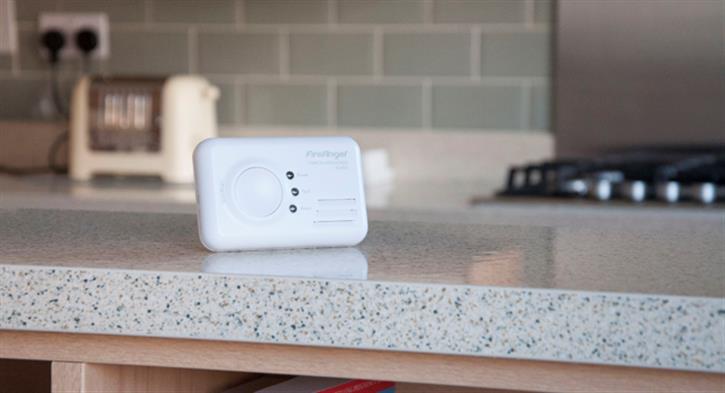

Wood burning stove owners are being reminded to have their appliances serviced and chimneys swept to protect themselves from Carbon Monoxide (CO) this CO Awareness Week.
The campaign, taking place from 21 – 27 November, is coordinated by the charity Carbon Monoxide Awareness and is now in its 11th year.
HETAS, the government-backed body for approving biomass and solid fuel appliances, fuels and services, is using the opportunity to talk about the risks of CO exposure and offer advice to homeowners to keep their families and properties safe.
CO is a poisonous gas that can be present in the fumes from the combustion of fuels which aren’t burnt under the correct conditions, for example, in faulty fossil fuel appliances or where there are chimney problems.
“While most people associate CO with gas, fuels such as oil, paraffin, coal, petrol and wood all have the potential to emit CO if burned in faulty or unmaintained appliances. CO cannot be seen and has no smell of its own, making it very difficult to detect by sense of smell and it can be very dangerous. For solid fuel and wood burning appliances, if the room is filling with smoke or fumes, action is required immediately,” explained Bruce Allen, chief executive office of HETAS.
“CO poisoning occurs when too much is inhaled. The most common instances are linked to heating appliance malfunctions and lack of servicing or chimney sweeping which means the CO filters back into the property, exposing the inhabitants. CO prevents oxygen from being carried around the body, causing sufferers to experience flu-like symptoms and in the worst case, injury or death.”
Lynn Griffiths, founder of Carbon Monoxide Awareness, a registered charity that supports victims and their families, was poisoned in her home for over 10 years due to a blocked flue. She suffers from on-going memory difficulties and symptoms of dyslexia, while both her children experienced health problems in early life.
“While we had our appliance checked many times over the years, we hadn’t thought to have the chimney flue investigated. I saw several GPs who told me my issues were related to asthma, no one was thinking outside the box,” said Ms Griffiths.
“The damage caused to my health is irreversible and has had a significant impact on my everyday life. I’m not able to work full time as the effects of the poisoning mean that sometimes it takes me four hours just to write an email. My message is simple – get your chimney swept and your appliance checked regularly, before it’s too late.”
Symptoms can include:
“First and foremost, if you don’t have a CO alarm already – buy one today. Good ones can be picked up from around £15 or you can order them directly from us for recommended products,” said Mr Allen.
“The device will detect any signs of the gas and allows you to react quickly. However, the key to prevention is regular servicing of your heating appliances by a registered competent person. HETAS Registered Installers and Approved Sweeps are trained to spot any problems which could lead to CO poisoning.”
To ensure you and your family are protected, follow HETAS’ checklist:
If you suspect fumes are escaping from your combustion appliance into your home, smoke begins to fill the room, or your carbon monoxide alarm goes off, turn the appliance off immediately and open doors and windows to ventilate the building. Leave the building immediately and don’t return until your appliance or boiler has extinguished and the air in the room is clear.
Before you reuse the appliance, have it serviced by a HETAS Registered Installer and the chimney swept by a HETAS Approved chimney sweep. Do not use the appliance until you are told it is safe to do so.
Image courtesy of Sprue Safety Products. Other makes and models are available.
If you'd like to keep up-to-date with the latest developments in the heating and plumbing industry, why not subscribe to our weekly newsletters? Just click the button below and you can ensure all the latest industry news and new product information lands in your inbox every week.